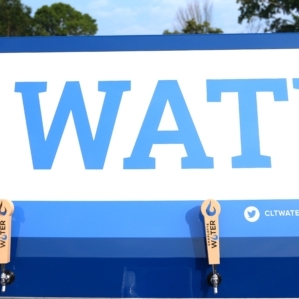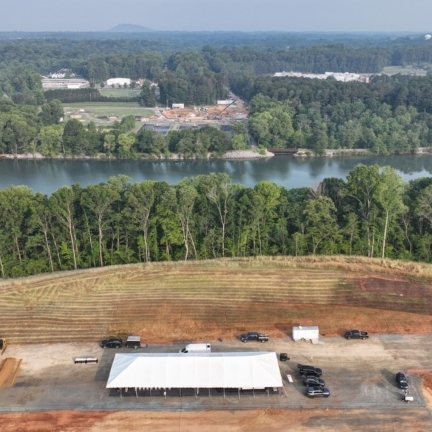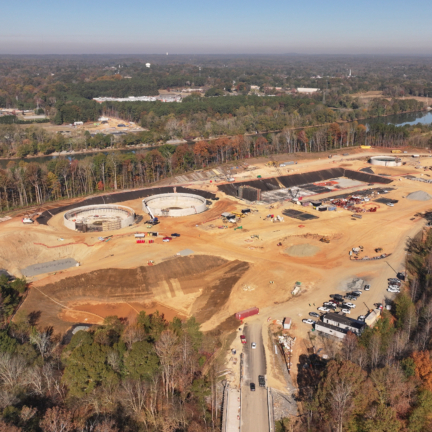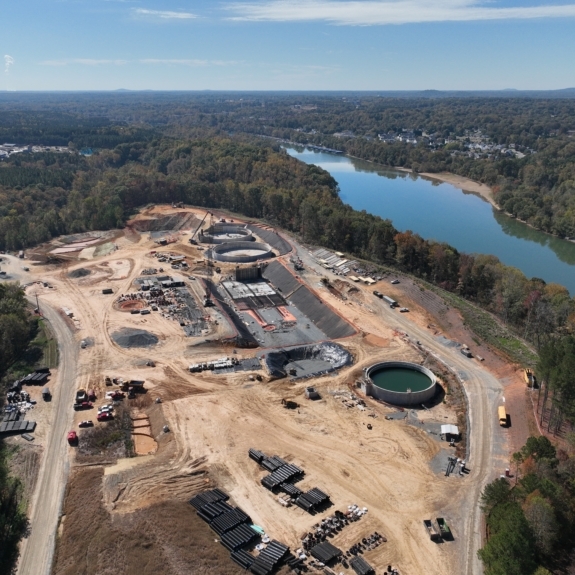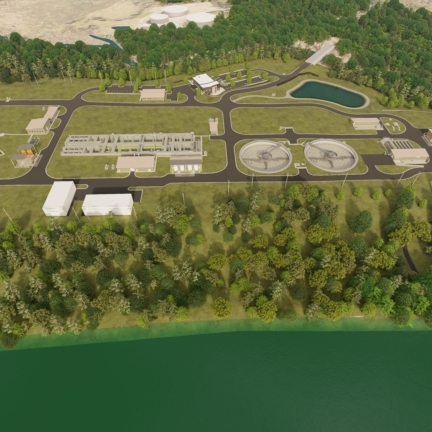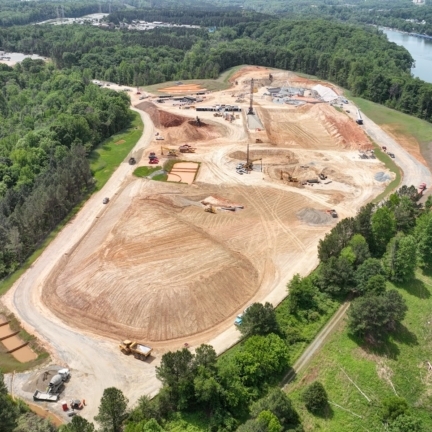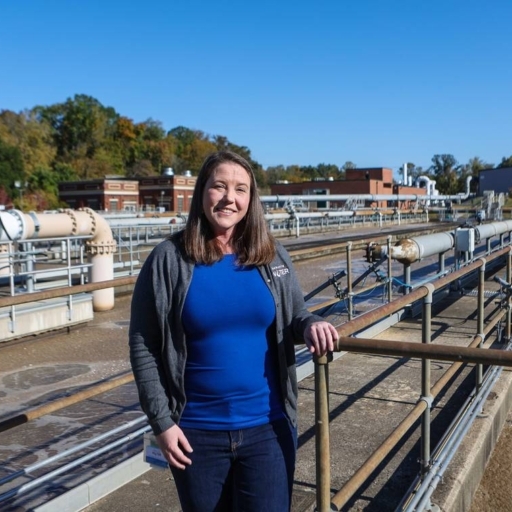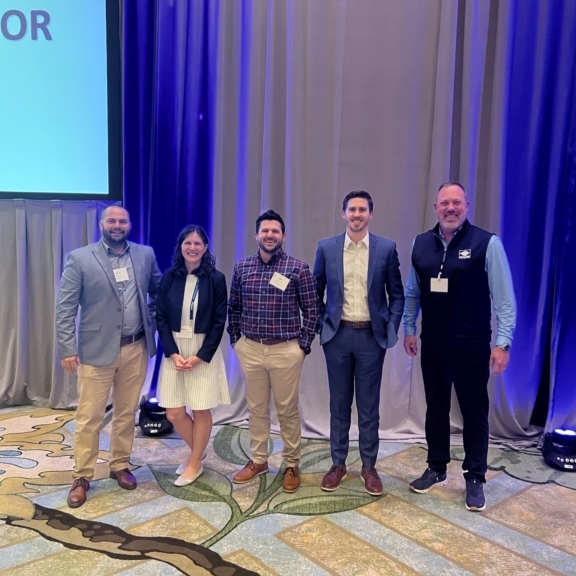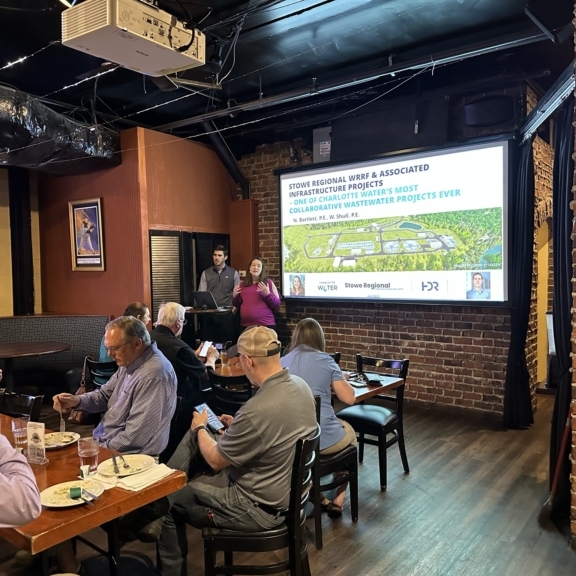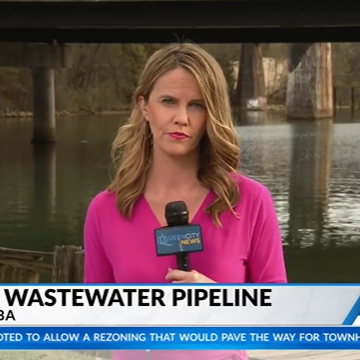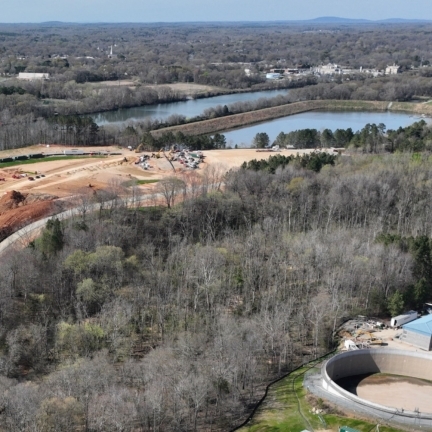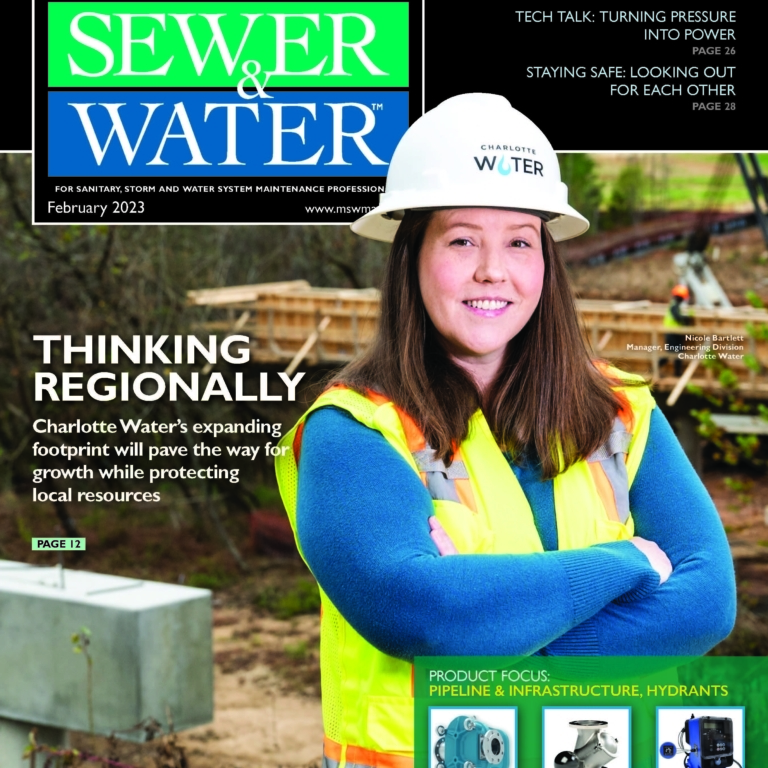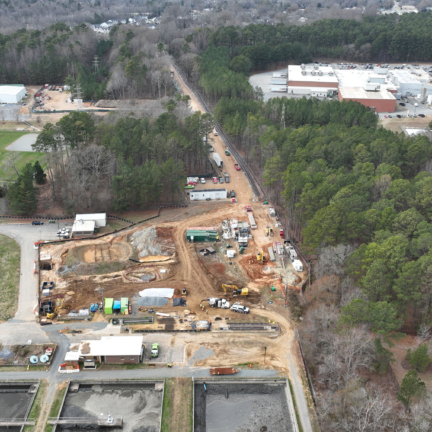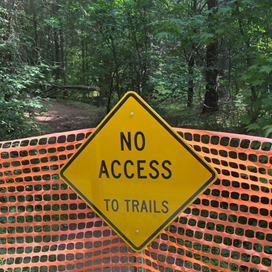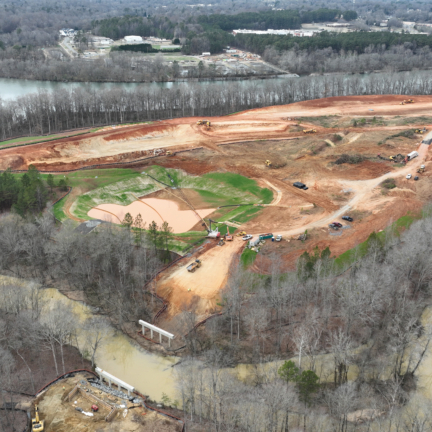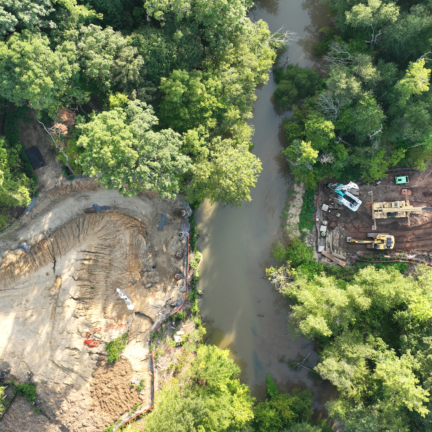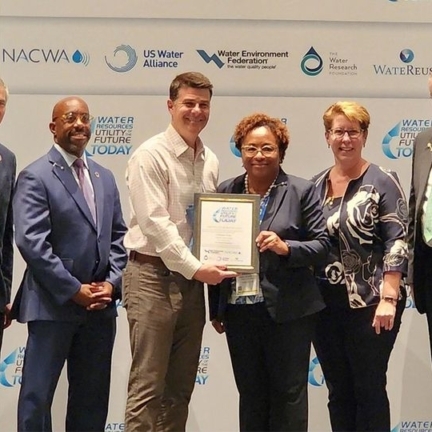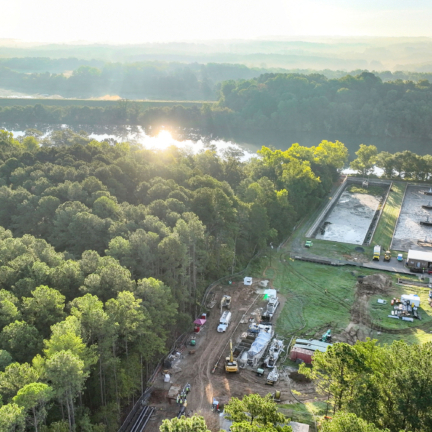Click the images below to learn more about the project!
Project Overview
Our region is growing quickly and that means there will be more wastewater that needs to be processed and treated. Charlotte Water is partnering with the City of Mount Holly and the City of Belmont to implement a regional partnership for future wastewater management to serve communities in northwestern Mecklenburg County and eastern Gaston County.
Charlotte Water is building a new state-of-the-art wastewater treatment facility that will serve northwestern Mecklenburg County and the Cities of Belmont and Mount Holly in eastern Gaston County. By forming a regional partnership, Charlotte Water, the City of Mount Holly, and the City of Belmont will each be able to provide more cost-effective and environmental conscious wastewater management services to their residents and customers, while also ensuring that they have the necessary infrastructure and treatment capacity to manage future wastewater flow projections.
This project is transformational for this whole region because our water resources are best managed regionally. The new Stowe Regional Water Resource Recovery Facility will provide Charlotte Water with the additional capacity and technology needed to process and treat the increasing amount of wastewater produced by our region. The Stowe Facility will be located along the Catawba River in Mecklenburg County, close to where the Catawba River and Long Creek meet. Right now, engineering and final design are underway and construction activities have started. We expect construction to be finished by 2026.
The Current Situation
Currently, wastewater from northwestern Mecklenburg County is being pumped 20+ miles to be treated at the McAlpine Wastewater Management Facility in Pineville.
In eastern Gaston County, Mount Holly and Belmont are both currently operating their own municipal wastewater treatment plants along the same section of the Catawba River to provide wastewater treatment services for their respective citizens.
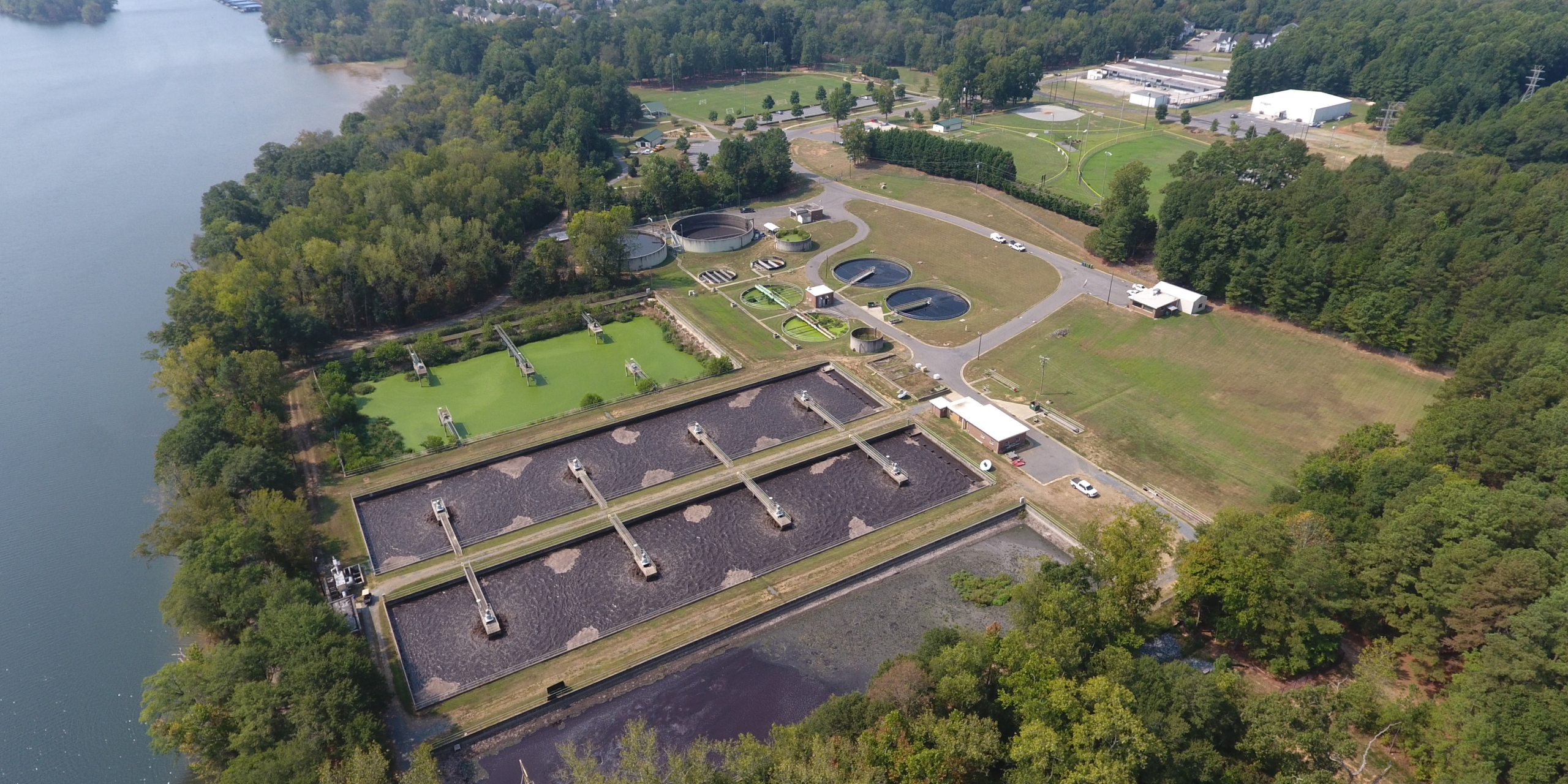
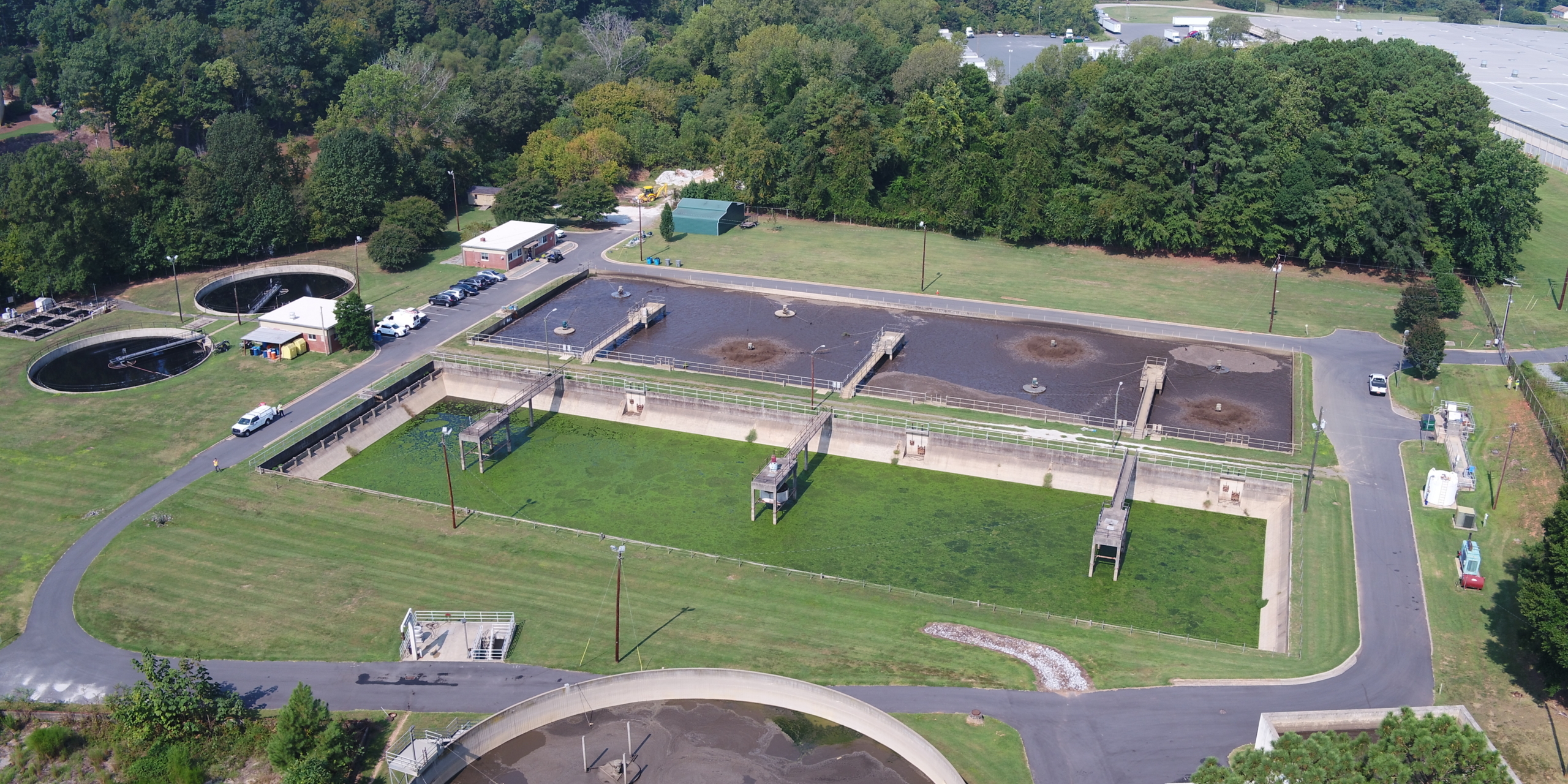
What Will This Project Do?
01.
Build a new state-of-the-art wastewater treatment facility
02.
Streamline wastewater treatment services by replacing two aging municipal wastewater treatment plants
03.
Build two new pumping stations to transport wastewater from Belmont and Mount Holly to the new Stowe Facility
04.
Retire the existing Mount Holly Wastewater Treatment Plant and the Belmont Wastewater Treatment Plant
05.
Provide more localized wastewater treatment for Charlotte Water customers in northwestern Mecklenburg County
What Would Happen If This Project Is Not Implemented?
If the new Stowe Facility is not constructed, the existing Belmont and Mount Holly Wastewater Treatment Plants would need extensive and expensive upgrades and expansions to remain in use due to growing wastewater needs and stringent treatment regulations.
Charlotte Water would need to complete a large-scale collection system replacement project in order to continue pumping wastewater from northwestern Mecklenburg County to Pineville, where it is currently treated. This collection system replacement project would involve replacing 20+ miles of underground wastewater pipelines, which would be costly and have significant construction impacts to the surrounding communities.
Project Funding
Estimated Project Cost $380+ Million
Charlotte Water will provide wastewater treatment services for the City of Mount Holly and the City of Belmont under an interlocal agreement with each of these municipalities. The City of Belmont and the City of Mount Holly have both signed detailed wastewater treatment service agreements with Charlotte Water; these agreements outline the facility design, project construction details, project financing, facility operations, and facility ownership.
The interlocal agreements also establish the wastewater treatment operations and maintenance rates that both Belmont and Mount Holly will be billed for, respectively, up to their requested capacity. Any wastewater flows above their requested capacity would be billed at a higher rate established in the agreement. Additionally, each city will be treated as individual customers to Charlotte Water and be billed on a monthly basis like any other Charlotte Water customer.
Charlotte Water will provide initial funding for the design, permitting, and construction of the Stowe Regional Water Resource Recovery Facility, as well as the wastewater collection system additions that will provide wastewater system linkage for our regional wastewater management partners. Construction of the wastewater pipelines that will connect the new Mount Holly and Belmont Pump Station with the Charlotte Water collection and treatment system will be funded by the City of Charlotte, with the exception that Mount Holly will fund one conveyance pipeline. Mount Holly and Belmont will each reimburse the cost for the design, permitting, and construction of their respective pump stations and related project components as outlined in their agreements with Charlotte Water.
Charlotte Water will own and operate the system, including the wastewater pipelines and collection system components needed to connect Belmont and Mount Holly to the Charlotte Water treatment facilities. Funding allocations for the Stowe Regional Water Resource Recovery Facility, the Long Creek Pump Station upgrades, and the wastewater collection system additions were included in Charlotte Water’s Capital Investment Plan. Funding for the design, permitting, and construction of the Stowe Regional Water Resource Recovery Facility, the Long Creek Pump Station upgrades, and the wastewater collection system additions will be financed from Charlotte Water’s Revenue Bonds. The City of Mount Holly has secured a Clean Water State Revolving Loan (CWSRF) to help offset some of their financial contributions. Belmont is currently in the process of seek a loan from the North Carolina Department of Environmental Quality (NCDEQ) as well.

